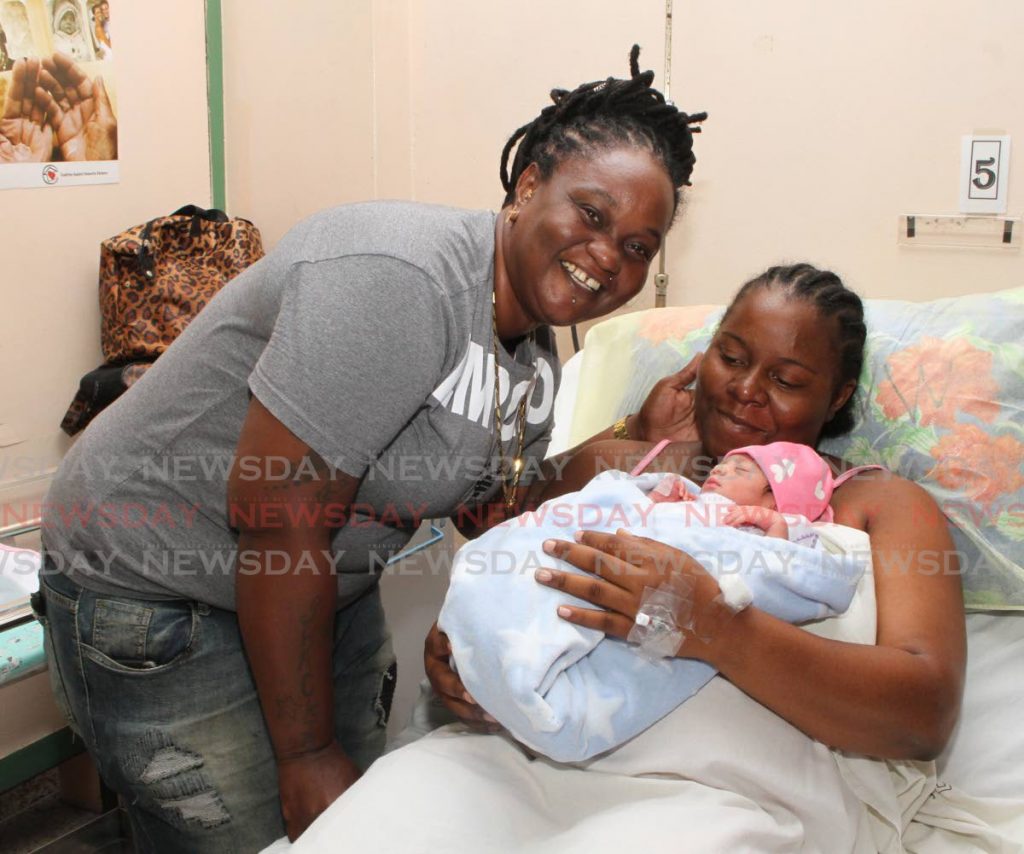Doc: No laws regarding sperm donors

There are no laws in TT for the regulation of sperm donors and artificial insemination.
Dr Catherine Minto-Bain, fertility expert, medical director and consultant gynaecologist at the TT IVF and Fertility Centre, said it was totally fine that same-sex couple Shackiba St Louis and Lisa Melville were able to conceive at home without medical help.
St Louis gave birth to a baby girl on New Year's morning at the Mt Hope Women's Hospital. The couple admitted that they got the sperm from a friend who is gay, and the insemination was done at home, after which baby Miracle was born.
However, Minto-Bain said this procedure did come with risks which involved HIV and Hepatitis B and C.
"There is no law here that says what a clinic can or cannot do, or what a couple can or cannot do – so there's no restrictions. But there are international guidelines for what a clinic could do. A clinic should certainly screen a donor properly always using frozen sperm because then you can be sure it hasn't got HIV."
She said a clinic never used fresh sperm as it could easily transfer infection, which was the biggest risk.
"Some couples don't want to come to the clinic. Some same-sex couples don't want to approach the clinic and they'd rather do it themselves, and you can. You can take the risk – somebody you know very well who is willing to be a sperm donor might be HIV-positive or hepatitis B-positive.”
She added, "It used to be that HIV was more common in the population of men who had sex with men – whether bisexual or homosexual. Nowadays, anybody could be exposed to HIV from a heterosexual partner, from IV drug use.”
Minto-Bain said the sperm could be inserted by using the turkey-baster method.
"We put the sperm inside the womb, not just inside the vagina. We wash it and put it inside the womb. There are lots of women who are nice and fertile. One in every three to four months the egg will be a good one and you'll get pregnant. They clearly chose a good sperm donor because his sperm was good and they got a baby.
"Whether you are using a sperm donor like that or having sex with your partner, your chance of getting pregnant is fairly good if you are young and healthy. It is a 15 to 20 per cent chance each time you try it."
Minto-Bain said the couple may have decided to do it themselves (artificial insemination) because of the cost.
"You have to go through a process of being seen and screened, buying the sperm, and having the IUI (intrauterine insemination) and those things do cost money. It can cost from $10,000 to $20,000 to have a treatment like that.
“Our success with IUI and donor sperm is 25 to 30 per cent depending on a woman's age. It is much much less if she is over 40.”
As to parental rights, Minto-Bain said the donor's name should not be on the birth certificate at all because that would give him parental rights.
"It is up to the woman who gives birth to name the donor. If you do it through the clinic, you register your husband's name even if you use a sperm donor. The husband has parental rights, but it is the woman's choice. My understanding is they don't have to put the father's name on the birth certificate
"It is left up to the agreement of the mother and the donor and that is the problem. There is usually no clear agreement. At the clinic, we have very clear counselling and contracts and the donors are literally giving a gift and they don't have any parental rights. I don't know what they did with this guy, so it is very much up in the air when these cases come to court when disputes arise because there were no proper agreements.”
Minto-Bain said as a sperm donor the friend was legally liable for child support if it was not done through a clinic.
"It could be a problem if people fall out, you may have no rights to see your child."
When Newsday tried to contact the couple last week, St Louis said she had no more comments to make to the media.

Comments
"Doc: No laws regarding sperm donors"